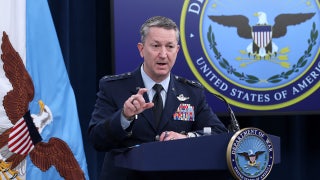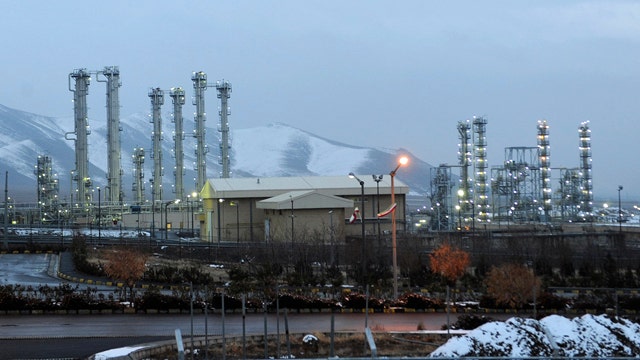Report: Nuke deal lets Iran use its own inspectors
Critics of agreement rip latest revelations
Capitol Hill opposition to the Iranian nuclear deal was stoked Wednesday by a bombshell report that Tehran will be allowed to use its own experts to inspect one of the country's most controversial nuclear sites.
"Allowing the Iranians to inspect their own nuclear sites, particularly a notorious military site, is like allowing the inmates to run the jail," Sen. Lindsey Graham, R-S.C., a presidential candidate, said in a statement.
The Associated Press reported Wednesday that, in an unusual and secret agreement with the U.N. agency that normally carries out such work, Iran can use its own experts and equipment in the search for evidence for activities that it has consistently denied -- trying to develop nuclear weapons.
At issue is an investigation of the Parchin nuclear site by the International Atomic Energy Agency. Iran has refused access to Parchin for years and denied any interest in -- or work on -- nuclear weapons. Based on U.S., Israeli and other intelligence and its own research, the IAEA suspects that the Islamic Republic may have experimented with high-explosive detonators for nuclear arms at that military facility and other weapons-related work elsewhere.
The IAEA has repeatedly cited evidence, based on satellite images, of possible attempts to sanitize the site since the alleged work stopped more than a decade ago.
A draft document seen by the AP suggests that instead of carrying out their own probe, IAEA staff will be reduced to monitoring Iranian personnel as they inspect the Parchin site.
That deal is a side agreement worked out between the IAEA and Iran, separate from the nuclear deal now before Congress for approval. Sen. John Cornyn, R-Texas, said the revelation only "reinforces" concerns about the broader agreement.
"Trusting Iran to inspect its own nuclear site and report to the U.N. in an open and transparent way is remarkably naïve and incredibly reckless," he said in a statement. "It is time for the Obama Administration to come clean with the American people and provide all information about these secret side agreements between Iran and the IAEA."
House Foreign Affairs Committee Chairman Ed Royce, R-Calif., who previously voiced concerns to the State Department over the so-called side deals between Iran and the IAEA, said the inspections need to be done by international inspectors, "Period."
"Congress must now consider whether this unprecedented arrangement will keep Iran from cheating. This is a dangerous farce," he said in a statement.
The Obama administration, though, defended the arrangement without going into detail.
"We are confident in the Agency's technical plans for investigating the possible military dimensions of Iran's former program, issues that in some cases date back more than a decade," National Security Council spokesman Ned Price said. "Just as importantly, the IAEA is comfortable with arrangements, which are unique to the Agency's investigation of Iran's historical activities. When it comes to monitoring Iran's behavior going forward, the IAEA has separately developed the most robust inspection regime ever peacefully negotiated to ensure Iran's current program remains exclusively peaceful...
"Beyond that, we are not going to comment on a purported draft IAEA document."
State Department spokesman John Kirby also said they are "confident in the agency's technical plans for investigating the possible military dimensions of Iran's former program" and the IAEA is "comfortable" with the arrangements as well.
Administration officials, including Secretary of State John Kerry, previously have stressed the importance of Iran disclosing past nuclear military activity as part of any deal framework.
But the AP reported that Iran will provide agency experts with photos and videos of locations the IAEA says are linked to the alleged weapons work, "taking into account military concerns." That wording suggests that -- beyond being barred from physically visiting the site -- the agency won't even get photo or video information from areas Iran says are off-limits because they have military significance.
IAEA experts would normally take environmental samples for evidence of any weapons development work, but the agreement stipulates that Iranian technicians will do the sampling.
The revelation comes as Republicans try to defeat the nuclear deal in a congressional vote.
If the resolution passed and President Obama vetoed it, opponents would need a two-thirds majority to override it. Even Senate Majority Leader Mitch McConnell, a Republican, has suggested opponents will likely lose, but the developments could fuel the opposition.
The Associated Press contributed to this report.













































